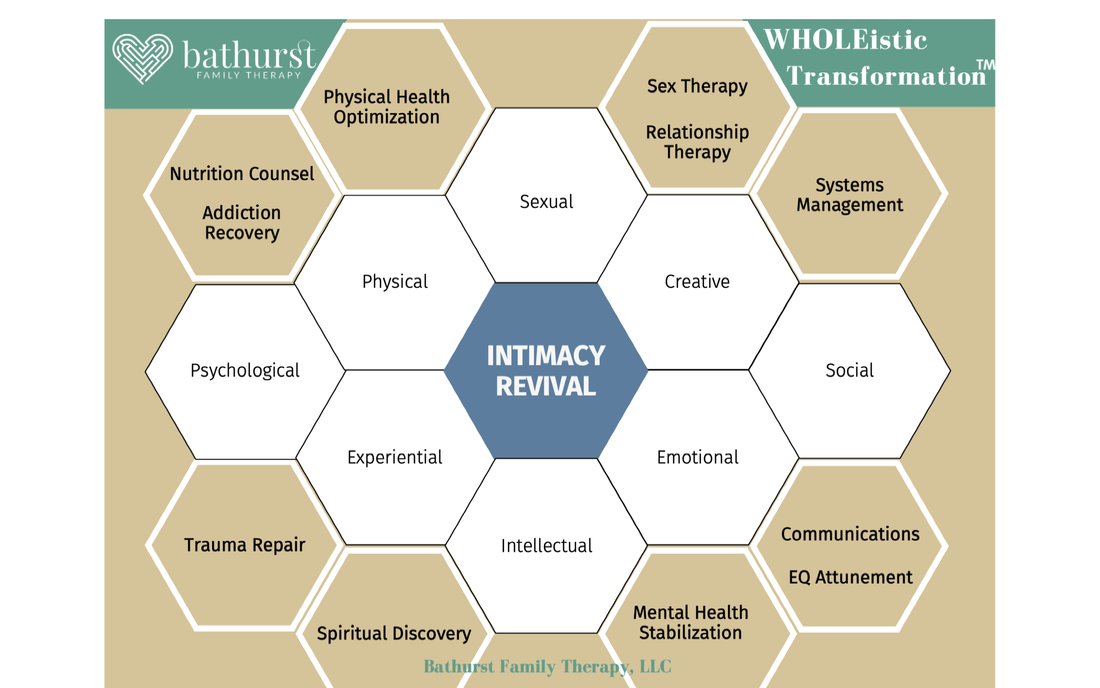Hormone Imbalance & Low Libido: Labs to Ask Your Provider About
Hormone Imbalance & Low Libido: Labs to Ask Your Provider About
If you’re experiencing low libido, fatigue, or disruptions in your physical or sexual health, it’s important to understand that your hormones might be trying to get your attention.
Many individuals assume that low desire is psychological or relational—sometimes it is—but as a Clinical Sexologist and Integrative Medicine Specialist, I frequently uncover hidden biological factors contributing to these symptoms. A comprehensive lab workup can help uncover the root causes that traditional checkups often miss.
Below is a detailed guide to recommended blood and at-home tests you can speak with your healthcare provider about to better understand how your hormones may be impacting your sexual and physical vitality.

🔬 Key Blood Labs to Evaluate Hormonal and Sexual Health
1. DHEA (Dehydroepiandrosterone)
Why it's important: DHEA is a foundational hormone—a precursor to both estrogen and testosterone.
Low levels may contribute to diminished libido, energy, and overall vitality.
2. Total Testosterone (for all genders)
Why it matters: Often labeled as the “male hormone,” testosterone is crucial for women too.
Impacts sexual desire, arousal response, muscle tone, and mood.
Be sure to ask for free testosterone levels in addition to total values.
3. Progesterone
Works in tandem with estrogen.
Ideal ratio: 100 parts Progesterone to 500 parts Estradiol (Estrogen).
Low progesterone may cause PMS symptoms, poor sleep, anxiety, and lowered sexual desire.
4. Estradiol (Estrogen)
Regulates vaginal lubrication, circulation, and skin elasticity.
Imbalanced levels—either too high or too low—can drastically affect sexual comfort and drive.
5. Cortisol (Stress Hormone)
Should be highest in the morning and taper off through the day.
Chronic high cortisol levels blunt sex hormone production and may lead to burnout, fatigue, and decreased libido.
6. CRP (C-Reactive Protein)
A marker for systemic inflammation.
Chronic inflammation has been linked to erectile dysfunction, low energy, and poor hormone conversion.
7. TSH (Thyroid-Stimulating Hormone)
Regulates metabolic and energy processes.
Thyroid dysfunction can manifest as low libido, mood instability, and weight changes.
8. Vitamin D
Deficiency is strongly correlated with erectile dysfunction, hormonal imbalance, and immune suppression.
Optimal levels support testosterone production and cellular health.
9. Vitamin B12
Essential for neurological health, energy metabolism, and mood.
Low levels can impair nerve sensitivity, arousal response, and overall sexual vitality.
10. ALT & ALP (Liver Enzymes)
Liver health is vital for hormone detoxification and metabolism.
Dysfunction here may affect estrogen and testosterone levels.
11. CBC (Complete Blood Count)
Screens for anemia, infection, or immune deficiency that may contribute to fatigue and decreased desire.
12. Triglycerides (TG)
Elevated levels may reflect poor cardiovascular health, which directly impacts stamina, circulation, and sexual performance.
🧪 At-Home Tests to Supplement Your Blood Work
In addition to conventional lab tests, I recommend these simple, functional health tests that you can complete at home:
1. Nitric Oxide Saliva Test
- Tests for circulatory health—a major player in erectile function and genital arousal.
- Low nitric oxide may point to poor vascular response or oxidative stress.
2. PH Test for Saliva and Urine
- Assesses your body's acid-alkaline balance, which affects cellular function, hormone receptor sensitivity, and inflammation levels.
- An overly acidic system may interfere with metabolic and sexual health.
⚠️ Why These Labs Matter More Than You Think
When hormones are out of balance, they ripple through your nervous system, energy levels, circulation, mental health, and sexual identity. These labs are not just about libido—they’re about vitality, intimacy, and connection.
Too often, clients come to me after being told “everything is normal,” yet they still feel disconnected from their body and partner. These deeper markers go beyond surface-level checks to uncover the real story behind the symptoms.
💡 Next Steps: What to Do Now
- Bring this list to your primary care doctor, naturopath, or endocrinologist.
- Don’t settle for “normal.” Request optimal ranges and full panel evaluations.
- If you need help interpreting your results or integrating hormonal and relational restoration, I’d be honored to guide you.
✅ COMMENT: Have you ever had hormone labs done for libido issues?
Dr. B, PhD, Clinical Sexologist
—
Therapist | Intimacy Architect | EMDR Specialist
Helping individuals and couples repattern trauma, restore trust, and reawaken intimacy.
Seen on CNN, MSNBC, Giddy, OWN, Brainz











